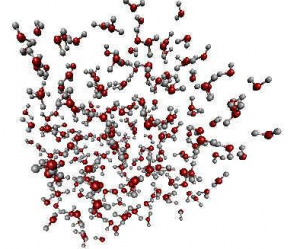A group of scientists from Minnesota have recently discovered that the polypeptide antibiotic produced by a harmless bacteria can be added to foods, for the purpose of effectively killing the salmonella, E. coli, listeria monocytogenes and some other harmful bacteria. The study result has shocked the public. People hold different ideas about such issue.
 In fact, this unique antibiotic discovered by the University of Minnesota is a natural preservative, which can effectively kill harmful Gram-negative bacteria. But what surprises the public is that such natural preservative can be eaten. A Professor of the university named Dan O’Sullivan said this natural preservative can be effectively used to protect food from contamination of some pathogens. Generally speaking, such antibiotic can be used in the field of meat, cheese, eggs, dairy products, canned food, seafood, salad dressings, fermented beverages, and many other foods as well. Certainly, the antibiotic is able to ensure the safety of foods. In addition, it is also easier to be absorbed by the body than any other substances.
In fact, this unique antibiotic discovered by the University of Minnesota is a natural preservative, which can effectively kill harmful Gram-negative bacteria. But what surprises the public is that such natural preservative can be eaten. A Professor of the university named Dan O’Sullivan said this natural preservative can be effectively used to protect food from contamination of some pathogens. Generally speaking, such antibiotic can be used in the field of meat, cheese, eggs, dairy products, canned food, seafood, salad dressings, fermented beverages, and many other foods as well. Certainly, the antibiotic is able to ensure the safety of foods. In addition, it is also easier to be absorbed by the body than any other substances.
While on the other hand, some people who against the antibiotic by saying that it will bring some side effects to the human body. They are reasonable for a certain degree but in fact the so-called side effects can be reduced through modern advanced biotechnology. Specifically, the non-toxic antibiotic won’t cause any allergic reaction; a lot of dangerous pathogens are difficult to produce the resistance to it. In this way, it can protect human body from bacteria’s invasion more effectively. The antibiotic is discovered by accident while O’Sullivan is studying the bacterial genomes. He and another graduate student are still continuing the study. Considering the frequent outbreak of fatal salmonella, this finding will be essential in future protection against the risk of bacterial contamination of food.
More specifically, the discovery of natural preservative will be helpful in the treatment of Salmonellosis (it may increase morbidity or mortality, or reduce the productivity of breeding animals). Given the details discussed above, the health of human body requires a wide range of protections from bacteria. Thus, the idea of natural preservative that can be eaten is worthy of a try.